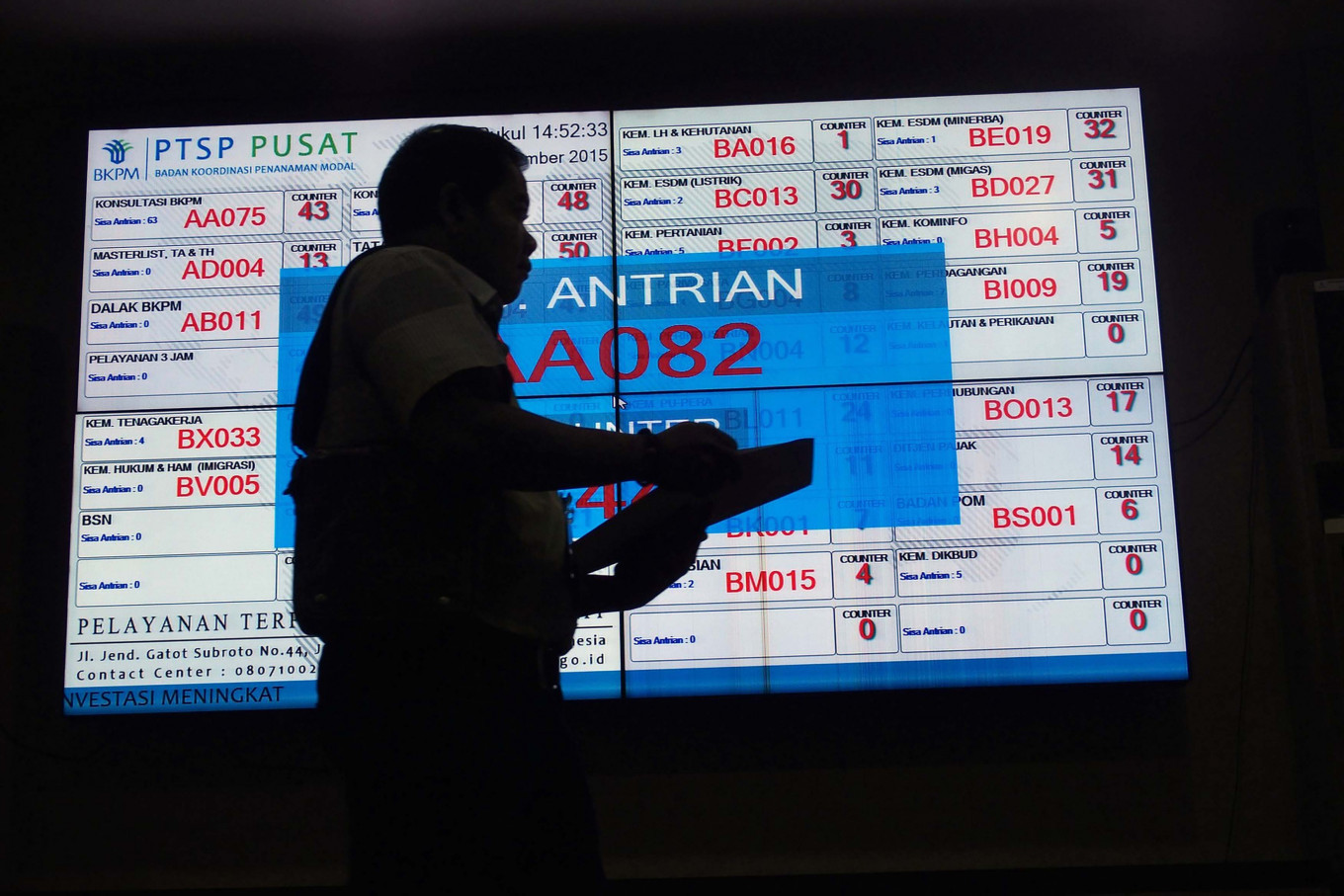Popular Reads
Top Results
Can't find what you're looking for?
View all search resultsPopular Reads
Top Results
Can't find what you're looking for?
View all search resultsFDI bounces back in Q3, but economic outlook remains uncertain
Change text size
Gift Premium Articles
to Anyone
F
oreign direct investment (FDI) picked up in the July-to-September period from the pandemic-induced declines recorded in the preceding two quarters.
The Investment Coordinating Board (BKPM) reported Rp 106.1 trillion (US$7.21 billion) in realized FDI in the third quarter, a 1 percent increase from the same quarter a year earlier. Singapore accounted for 33.8 percent of the figure, followed by China and Japan.
The agency reported 9.2 percent and 6.9 percent year-on-year (yoy) declines in realized foreign investment in the first and second quarters, respectively.
“This is interesting, as FDI realization has started picking up although it has not been optimal. This is in line with [domestic investment],” BKPM head Bahlil Lahadalia said at a virtual press conference on Friday.
“This means that the third quarter was the moment of rising. [FDI] was down in the second quarter. Now both domestic investment and realized FDI are rising,” Bahlil added.
The COVID-19 pandemic has hit the country’s economy hard, disrupting business and weakening purchasing power. Indonesia’s gross domestic product (GDP) shrank 5.32 percent in the second quarter as household spending and investment contracted by 5.51 percent and 8.61 percent, respectively.
Consumer spending accounted for nearly 58 percent of GDP in the second quarter, followed by investment at 30.61 percent.
The government has sought to maintain strong investment during the pandemic by attempting to entice companies leaving other countries to relocate to Indonesia, developing industrial parks and passing the Job Creation Law.
Through the recently passed jobs law, the government hopes to overhaul the country’s regulatory climate with the revision of at least 79 prevailing laws and the elimination of thousands of articles in an effort to make Indonesia more attractive to investors.
“With the jobs law passed and with some components that we need for the ease of doing business, I am sure that our investment realization will certainly be higher in 2021,” said Bahlil. The agency, he added, was expecting 153 companies to invest in the country next year.
The BKPM recorded Rp 209 trillion in total realized investment – both domestic and foreign – in the third quarter, an increase of 1.6 percent from the same quarter last year. For the January to September period, the agency recorded Rp 611.6 trillion in realized investment, an increase of 1.7 percent yoy. The figure comprised 74.8 percent of the 2020 target of Rp 817.2 trillion.
Some 17 percent of the total investment was in transportation, warehousing and telecommunications. This was followed by utilities, metals, non-metals and non-machine industries, as well as housing, industry and office industries.
Realized domestic direct investment (DDI) rose to Rp 102.9 trillion in the July to September period, a 2.2 percent increase from the same quarter last year.
The BKPM hopes to create 1.3 million jobs from the overall investment next year, marking a slight increase from this year's target of 1.2 million jobs. As of September, this year’s investment had led to the creation of 861,581 jobs.
The uptick in realized FDI, however, does not signal recovery, said Andry Satrio Nugroho, head of the center for industry, trade and investment at the Institute for Development of Economics and Finance (Indef).
“We have not seen any big investment realization plan [and won’t until] at least next year,” Andry told The Jakarta Post on Friday.
Center of Reform on Economics (CORE) Indonesia executive director Mohammad Faisal said it was highly unlikely that the slight growth in investment realization would significantly boost economic growth for the remainder of the year if the pandemic wore on.
CORE Indonesia is expecting an annual contraction of between 1.5 and 3 percent in 2020 as a result of the pandemic.
“As long as the pandemic is still around, investment will not be strong enough to push [growth] into positive territory,” Faisal told the Post on Friday.
“People take into account profitability when they make investments. They do not want to invest in uncertain conditions. During the pandemic, the uncertainty is very high,” he added.










